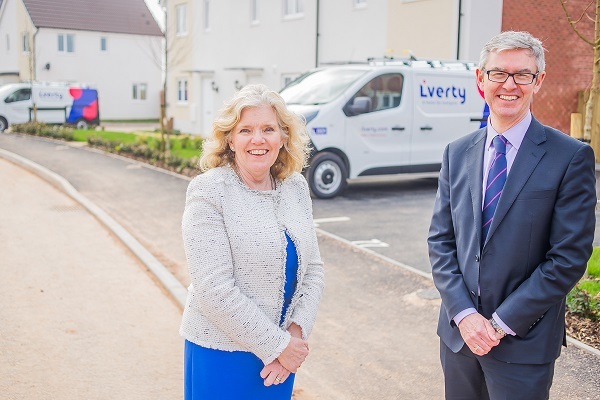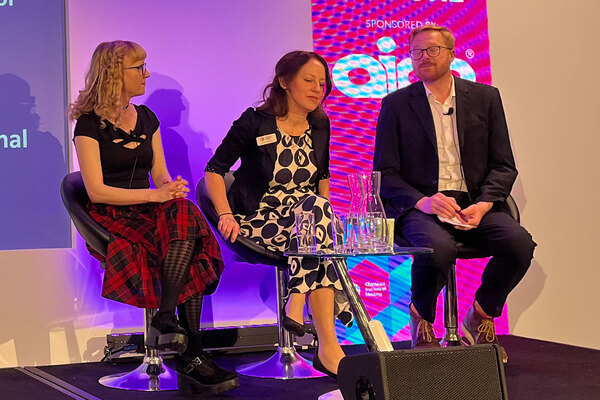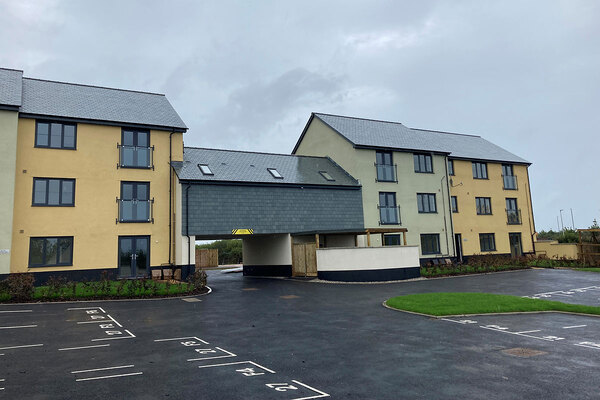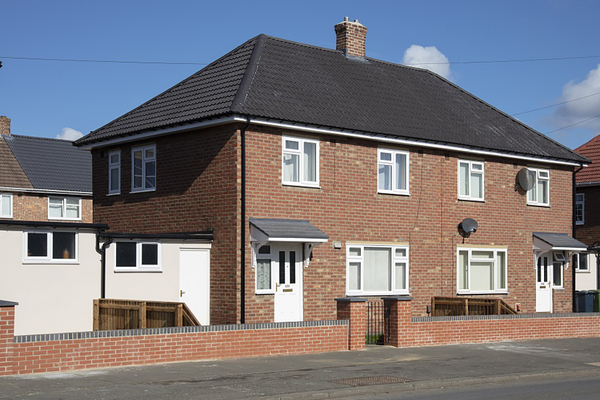A lesson in mergers
A year on from its merger, Inside Housing asks LiveWest’s chief executive Paul Crawford what learning his organisation has for the sector. Picture by Getty
In association with:

There has been a spate of mergers among housing associations in recent years, with many others thinking about doing so, too. LiveWest was created last year through the merger of DCH and Knightstone. What learning do you have to pass on?
I think there are two things that we would highlight. The first is that we have kept a clear focus on our key drivers for creating LiveWest. These were to enable a step change in the delivery of affordable homes across the South West, as well as transforming customer services.
The second is the importance of focusing on getting the basics right. In our first year we have focused on integrating the two legacy organisations and meeting a range of challenging operational targets.
Our focus on customer engagement has seen results of more than 90% on our monthly ‘Star’ survey ratings. We have also embarked on benchmarking with the Institute of Customer Service. This is part of our commitment to compare our performance against some of the best-regarded service providers nationally.
We are seeing strong – and still improving – performance against a range of customer service industry standards.
Most mergers claim that they are going to deliver increased capacity – but some observers have been sceptical about whether this is the case in practice. What has your experience been?
I think the point to bring out here is that, if managed well, mergers will almost always increase financial capacity. For LiveWest, the key has been to use that capacity effectively for the delivery of new homes.
At the point of merging, we had ambitious plans to build 15,000 new homes of all tenures over the next 10 years, substantially more than the two previous organisations combined. We have already extended this ambition to 16,000 new homes, accelerated by becoming a Homes England ‘first wave’ partner nationally with Sovereign. Together we have secured £111.5m in grants to build a further 2,275 new homes by 2024. We will also be working with smaller housing associations to deliver this land-led programme.
More widely, we have focused on becoming less reliant on Section 106 legal agreements and more on securing further land-led opportunities. This is already paying dividends, with a 10% increase in affordable homes completed in 2018/19 than on the previous year to 900 homes.
Having accelerated securing opportunities since the merger, in 2019/20 we will see around 1,200 new affordable homes completed. The majority of these will be for affordable and social rent, together with a further 200 for open market sale.
Our delivery of new homes will have wider benefits, too. Over the next 10 years, our planned £2bn investment in new homes will not only contribute to economic growth in the South West but sustain around 6,500 jobs in the building industry and its supply chain.
Through the Homes for the South West influencing group, we are also working with other housing associations to make the case for further new housing at local and regional level, including emphasising the vital role housing plays in national and regional economic infrastructure.
Given the current uncertainty in the housing market, does the scale of this development programme not bring risks?
Part of our development strategy is to include a carefully assessed proportion of sales in our programme, both market sale and lower-risk shared ownership sales. Last year our total sales activities delivered £8.5m in profit, which we invested in new affordable homes.
In building a pipeline of new homes for sale, we recognise that what’s important is how we control and mitigate this risk, how we protect ourselves against any market downturn, and how we ensure we don’t rely on sales to support our core business.
“Mergers will almost always increase financial capacity. For LiveWest, the key has been to use that capacity for new homes”
Our social housing interest cover is strong, underlining the resilience of our core business. We operate in markets we know intimately, with strong internal reporting on performance, trends and market intelligence. We have effective controls on work in progress and value at risk, we achieve sound margins on our sales programme and we emphasise careful management of our open market landbank. All of this ensures risks, including impairment, are within our stress-tested business plan scenarios – even in the event of significant house price falls.
To reduce our risk further, the majority of our market sales activity is through joint ventures with major developers, meaning we are sharing opportunities, risks and expertise. The Homes England first wave programme also enables us to plan over longer horizons than before. This in turn offers the potential to flex tenure to reflect market conditions right through the build programme.
Fundamental to our risk management is that we have created effective governance with a strong board, including varied commercial expertise and extensive housing market experience at both non-executive and executive levels.
Many newly merged organisations concentrate on embedding change early on. How easy is it to keep an eye on the long term, and what are your plans for your second year and beyond?
In the first year since merging, our focus has indeed been on making sure that we have created firm foundations for the future by embedding change through transition and integration. Managing the many complexities of bringing together two businesses with their associated systems and processes has not been without its challenges, but we are now in a strong position to move forward.
We are developing four key themes in our new strategy: trusted by our customers, homes and communities that people love to live in, a staff team who are proud to work here, and a growing business that is fit for the future.
This is demonstrated through our ambitious growth plans for affordable homes, the continued transformation of our customer services, our digital agenda and through our focus on meeting the changing expectations of our customers.
“Bringing together two businesses with their associated systems and processes has not been without its challenges, but we are now in a strong position to move forward”
Housing associations are often perceived as being either good at development or customer services but rarely both. At LiveWest, our aim is to achieve this balance – building affordable homes at scale and ensuring we are trusted by our existing and future customers to provide high-quality services and homes.
As part of this, we have set up involvement and engagement frameworks to scrutinise and challenge our work and make sure our customers’ voices are heard clearly at all levels.
Since the merger we’ve completed two new build offices in Exeter and Tolvaddon, Cornwall, to complement our Weston-super-Mare office, where we are also making major investment. Combined with ‘touchdown points’ for our many mobile workers, we are aiming to offer a contemporary working environment with an emphasis on building a shared culture. With the pace of change, it’s been really important to keep people engaged and motivated.
Our first year is just the start. With our ambitious strategy we are looking forward to working with partners across the South West on the next phase of our journey, delivering homes and services that will have a positive and lasting impact on people’s lives and the communities where they live and work.










